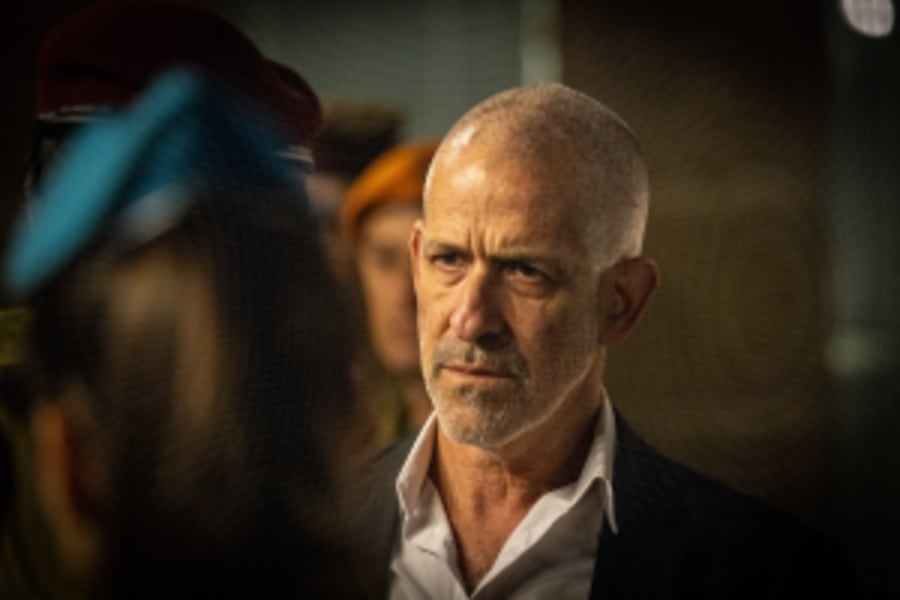Iranian mullahs ‘desperate’ for deal to remove economic sanctions, not military confrontation, says former Israeli deputy national security advisor
But Biden team looks too eager to make concessions, Chuck Freilich tells ALL ISRAEL NEWS

JERUSALEM – When it comes to Iran, the Biden administration is making a fundamental and terrible mistake, says a former high-ranking Israeli official.
Chuck Freilich, Israel’s former deputy national advisor, believes that U.S. President Joe Biden and his White House look more desperate than the Iranians to get back into the nuclear deal.
“What I fear is that the Biden team has created the impression that they are more avid to return to the deal than Iran is,” Freilich told me.
“That is not a good way to negotiate. When your adversary and negotiating partner has that impression, your position is weakened by definition. I think the Obama administration made the same mistake in 2015.”
The good news, Freilich says, is that Tehran does want to be back in the Joint Comprehensive Plan of Action (JCPOA), rather than a military confrontation with the U.S., Israel and the moderate Arab states.
The mullahs “desperately want to rejoin the deal now,” Freilich told me, “not because they have become peaceniks – far from it – but because the price of the present course of confrontation is simply too great.”
In part one of our two-part interview, Freilich analyzes the current state of the Iran threat, what the Biden team is doing right and wrong, and offers his take on the best way forward.
ROSENBERG: Chuck, in a recent interview with The New York Times, you said that you believe Iranian leaders want a deal, not a confrontation with the U.S. or Israel. What’s the basis for your assessment?
CHUCK FREILICH: Thirty years of intensively following Iranian behavior around the nuclear issue, about half of that time while I was still in the government in Israel and about half since becoming an academic specializing in Israeli national security affairs.
First, let me say that a nuclear Iran would be a potentially existential threat to Israel and a severe threat to the national security of the United States and the international community. So, I take it very, very seriously and believe that Iran must be prevented from going nuclear at all costs. Obviously, a diplomatic resolution would be greatly preferable, but if military action is ultimately required, so be it.
Now, to your question.
If you look at Iran’s behavior, they had the technological capability to cross the nuclear threshold by 2010, probably a few years earlier. They chose then, despite years of severe economic pressure starting under Clinton, continuing under Bush and Obama, and made even worse under Trump, to prefer nuclear talks over a confrontation. And they are conducting talks today, as well.
It is critical to understand that Iran, from its perspective, has extremely good strategic reasons for wanting a military nuclear capability. We would, too, if we were Iranian strategists. They view a nuclear [weapons] capability as the only means of ensuring their security and even more importantly, the longevity of the Islamic Republic, in the face of what they perceive to be an existential threat from the United States and a severe one from Israel. So, they have absolutely no intention of ever giving it up completely. But they have been willing to postpone it.
As a theocratic regime they have a different sense of time than we do. If it takes them an extra couple of decades to achieve a military nuclear capability, but they are able to do so without the severe costs entailed by a confrontation with the U.S., Israel and international community, they greatly prefer that. That’s why they agreed to negotiate in 2012, signed the deal in 2015, and desperately want to rejoin the deal today. Not because they have become peaceniks – far from it – but because the price of the present course of confrontation is simply too great.
The fact is that they have had more than enough reasons to abandon the deal completely and reject negotiations, beginning with (former U.S. President Donald) Trump’s withdrawal from it, even though U.S. intelligence did not believe they were in violation of the deal. Since then, they have been subject to severe and repeated American and Israeli attacks, some acknowledged, some not – all justified. But understand it from their point of view: assassination of one of their top and arguably most effective leaders, Qassem Soleimani; the head of their nuclear program, Mohsen Fakhrizadeh; cyber-attacks, attacks on their shipping; and two devastating attacks on the Natanz nuclear facility. And they still want talks!
I think that is sufficient proof of what I said, that they don’t want a confrontation.
The Iranians, of course, are not innocent actors in this game. They have launched numerous attacks of their own against the U.S. and Israel, built up a mind-boggling Hezbollah arsenal of 130,000 rockets aimed at Israel, and are slowly establishing a military presence of their own in Syria, despite hundreds of Israeli airstrikes designed to prevent it. In the short term, dealing with Hezbollah and the Iranian presence in Syria are the two most pressing objectives, in the longer term the nuclear issue.
ROSENBERG: What kind of deal do you believe Iran would accept? Are they economically desperate enough that they would be willing to fully give up their uranium enrichment program?
CHUCK FREILICH: The sanctions were not designed to cause Iran pain, for pain’s sake, but to force it to change its policies. That has failed completely. Maybe another four to eight years would have convinced them to cave-in. That is questionable, as well, and the mammoth new deal that they signed with China recently greatly reduces their vulnerability.
In short, I don’t think there is any deal that will get them to fully dismantle the enrichment program.
However, they did agree to significant limitations on it under the 2015 deal (the Joint Comprehensive Plan of Action, aka JCPOA), and are ready to do so again for the duration of the agreement.
In the short term, I believe that it will be almost impossible to get the Iranians to go beyond a return to the JCPOA. I would love to think that we can use the leverage that [President] Trump did succeed in gaining through the policy of “maximum pressure” to reach a new and better deal. But it is no longer believed that is realistic. We will have to swallow hard and go back to the old deal, despite its imperfections and the fact that five of its 10-15 years have already expired.
The alternative is a confrontation.
At a second stage, and unfortunately without Trump’s additional leverage, the U.S. will have to then lead the international community in negotiating a new deal with the Iranians and that will be very hard. So, expect the Iranian issue to be with us for many years.
The new deal will have to address, first and foremost, the JCPOA’s so-called “sunset clause”, i.e. expiration in another 5 to 10 years, and make sure – at a minimum – that it is extended, preferably in perpetuity but at least for a lengthy period.
If the Iranians do not agree to the extension, I would come to them at the beginning of year 10 of the JCPOA and inform them in no uncertain terms, that at least from the American and European perspective, the nuclear limitations remain in effect indefinitely. Take it or leave it.
Separately, I would pursue limitations with the Iranians on their ballistic missile program and regional expansionism. I would not make this a part of what should, at this stage, be a purely nuclear deal. Let’s put the nuclear issue to bed. It is the only existential one. We have other measures of addressing the other threats, diplomatic, economic, offensive, and defensive.
Israel is the strongest military power in the region. Our existence is no longer in danger, although there are severe threats, and if the United States adopts a steadfast approach, we can handle these other issues.
ROSENBERG: At this point, what would you say the Biden team is doing right vis-a-vis-Iran?
CHUCK FREILICH: I agree with the Biden administration’s overall desire to return to the deal and believe that they are truly committed to preventing Iran from going nuclear.
At the same time, Iran is relatively low on their order of priorities, which is focused mostly on domestic issues at this point, the COVID health crisis, economic crisis and more, and in terms of foreign policy, on China.
ROSENBERG: What mistakes, if any, are the Biden team making in Iran?
CHUCK FREILICH: What I fear is that the Biden team has created the impression that they are more avid to return to the deal than Iran is. That is not a good way to negotiate. When your adversary and negotiating partner has that impression, your position is weakened by definition. I think the Obama administration made the same mistake in 2015.

Joel C. Rosenberg is the editor-in-chief of ALL ISRAEL NEWS and ALL ARAB NEWS and the President and CEO of Near East Media. A New York Times best-selling author, Middle East analyst, and Evangelical leader, he lives in Jerusalem with his wife and sons.














